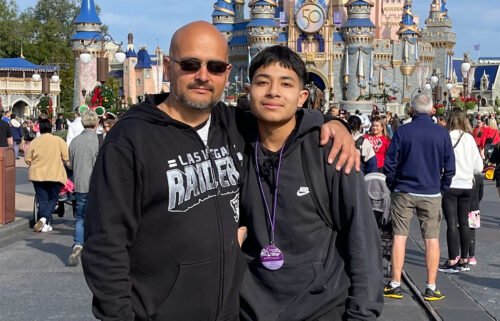The power of a real apology

“Forgiveness” in the time of Covid usually refers to loans, as in TD Bank’s recent announcement that, pending new information, it was no longer “accepting new forgiveness applications.”
That phrasing got me thinking about how we, as individuals, sometimes struggle to accept a “forgiveness application” — aka apology — from someone who has done us wrong. Is there a formula to follow for the perfect mea culpa? What might an “applicant” need to say or do to earn forgiveness?
In her new book, “The Forgiveness Tour: How to Find the Perfect Apology,” Susan Shapiro explains that a full apology includes four essential elements: acknowledgment of the offense, an explanation of why it happened, remorse coupled with a commitment to do better and making reparation.
The book is the culmination of a decade-long quest to understand the nature and practice of forgiving. After a fallout with her mentor, Shapiro sought insight from religious leaders and people who had suffered unforgivable wrongs, including genocide, sexual assault and cruelty of all sorts.
Based on all she has learned, Shapiro dismissed “radical forgiveness” as “wrongheaded” because “forgiving someone who doesn’t apologize, who doesn’t understand what they did wrong, might just perpetuate your own hurt.” Instead she offered more nuanced alternatives to issuing — or asking for — blanket absolution.
This conversation has been lightly edited for clarity.
CNN: There is a lot of talk right now about acting with kindness because we can’t know other people’s struggles. Even coffee shops are posting reminders like: “Today you could be talking to someone who is trying their best not to fall apart.” How does this tie into what you’ve learned about forgiveness?
Susan Shapiro: Between the pandemic, the contentious election, financial problems and lost loved ones, people are going through traumas you don’t know about. Reaching out to someone directly, in a kind way, can be lifesaving. You can say, “I haven’t heard from you for a while” or “Our last conversation was difficult” or “Did I do something to offend you? If so, would you give me a chance so we can talk it out?” or simply, “I just wanted to check up on you.” That might open some doors to understand what somebody’s going through, which can be the first step toward resolving a conflict.
CNN: What have you learned about finding the “perfect apology”?
Shapiro: For the book, I interviewed 13 people who felt that they were owed apologies, but a conversation with my father taught me that expressing regret yourself can be a great way to get an apology. I’d long wanted my father to say he was sorry for how nasty and dismissive he’d been about my writing career.
When I asked forgiveness for not attending his father’s funeral, my father opened up and started telling me amazing stories about my grandfather. Not long after, he wound up telling me how proud he was of me. Copping to something I’d done wrong opened the floodgates, and we were able to completely reconcile before I lost him.
CNN: A wise person once told me that if you can talk openly with someone, your relationship can withstand almost anything. To what extent were misunderstandings or miscommunications the barrier to apologies and forgiveness among those you interviewed?
Shapiro: Most of the interpersonal conflicts I wrote about were fixable on some level, and the first step was a willingness to consider events and circumstances in a different light. Seeking connection and viewing things from another’s perspective can help illuminate realities in the big picture that might be causing the rift.
But I also interviewed Holocaust and Bosnian War survivors who’d suffered through horrors where an apology was impossible. Several people I spoke with have not forgiven but have found ways to move on, sometimes even surviving out of spite.
If an apology is impossible, or if someone cannot or will not forgive, they need a plan of action. The more we blame the past, the harder it is to move on.
Holocaust survivor and therapist Emanuel Mandel explained to me that there is a way to remember and understand trauma without dwelling on it. “I spent 40 years helping people learn they have choices,” he told me. The best way to get unstuck is to start by talking with someone you trust: a clergy member, sponsor, therapist or mentor. Another option is writing a letter.
CNN: Do you mean the kind of letter you actually send to someone, or the kind you keep to yourself?
Shapiro: Both can be helpful. Start by exploring exactly what harmed you. Express your hurt on paper and then say what you want. Crystallizing in your own mind the details of how you were wronged can help you understand what happened. If you choose to send the letter, that can help foster communication and perhaps lead you to an apology. If there was an estrangement and you can approach somebody with an open heart, it’s possible that you’ll learn more about what went wrong and find peace.
Of course, not everybody is going to respond the way you want them to, but reaching out could provide information that will help you understand the situation differently.
CNN: It sounds like the first step toward reconciliation in most cases is seeking more information. Do you agree?
Shapiro: Just the process of asking what’s going on could end up illuminating the extenuating circumstances that hurt you. Once I was feeling blown off by a favorite student. Instead of bristling, I asked if she was OK. It turned out that her car had broken down, costing thousands of dollars. I could have assumed she was flaky. Instead she was going through a nightmare and couldn’t afford to visit.
CNN: What if you decide that a relationship is just too unhealthy to continue?
Shapiro: There is a difference between forgiving someone and resuming a relationship. A Muslim chaplain I spoke with told me a Quran story of when the Prophet Muhammad decided not to execute the killer of his beloved uncle but also told him, “As much as possible do not come before me.” This was basically like saying, I forgive you but get out of my face forever.
If somebody cannot acknowledge what they did wrong or doesn’t understand your feelings, keep them at a distance to protect yourself. Forgiveness alone might help you move on.
CNN: What have you learned about the power of reparations?
Shapiro: Reparations can come in all shapes and sizes, not just financial. But in Mandel’s case, the $1,000 a month that the German government gave his family helped them move on. Reparations can provide a foundation for building a better life in the present or something to look forward to — both of which make it easier psychologically to let go of the past.
When it comes to forgiveness, or at least moving on, sometimes concrete action can substitute for words.




